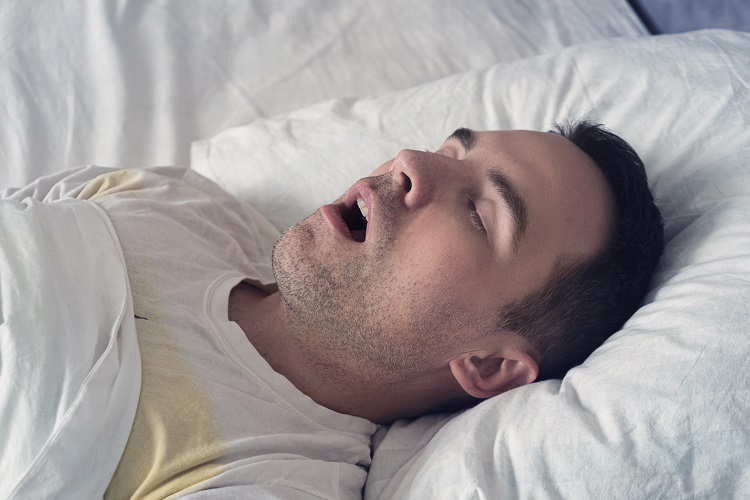Sleep Apnea – Diagnosis and Treatment
Sleep Apnea is a prevalent condition characterized by the partial or complete blockage of a person’s airway multiple times during sleep. Approximately 13% of males and 5% of females suffer from obstructive sleep apnea at a severity level that negatively impacts their health. This condition can lead to excessive sleepiness, elevated blood pressure, and an increased risk of cardiac disease and diabetes. Considering the high prevalence of Sleep Apnea and its detrimental effects on health, it is crucial to identify and treat it when present.

Sleep Apnea and Snoring Are they different
noring and Sleep Apnea share similarities as they both occur when the muscles in the tongue and upper airway relax during sleep, causing a blockage of the airway, either partially or completely. However, there are distinct differences between the two conditions.
In snoring, the airway experiences a slight narrowing, which is sufficient to create vibrations in the back of the airway, resulting in the characteristic snoring noise. While snoring can be disruptive and bothersome, it does not cause significant breathing difficulties or interruptions in sleep.
On the other hand, Sleep Apnea involves a more pronounced narrowing or complete blockage of the airway during sleep. This obstruction makes breathing significantly more challenging. As a result, individuals with Sleep Apnea experience frequent short awakenings, known as arousals, as their brain detects the breathing difficulties and prompts them to regain muscle control in the throat, thereby reopening the airway. This constant cycle of awakening and fragmented sleep prevents individuals with Sleep Apnea from obtaining sufficient or good quality sleep, leading to excessive daytime sleepiness and fatigue.
Understanding the distinction between snoring and Sleep Apnea is important for proper diagnosis and appropriate treatment.
- Loud Snoring
- Fatigue
- Daytime Sleepiness
- A sense of waking choking or gasping for air
- Apneas (pauses in breathing) witnessed by bed partner
- Insomnia
- Problems with concentration and memory
- Impotence
- Mood changes or Feeling irritable
- Frequent urination in the night
- Morning headaches on waking up
- Overweight or obese people
- Patients with comorbid conditions like Diabetes, hypertension ,heart failure, atrial fibrillation should be screened for Sleep Apnea
- If there is a family history of OSA or snoring
- People with small lower jaw and crowded upper airway
- Male gender
- Large neck circumference, Large tonsils or a blocked nose can also cause Sleep Apnea.
- People with associated Medical Conditions as below are also at increased risk of OSA
- Medications like Sleeping Pills, sedatives, narcotics and alcohol consumption at bedtime
- Post-menopausal (for women)
- Hypothyroidism (low levels of thyroid hormone)
- Acromegaly (high levels of growth hormone)
- Muscular diseases like dystrophies etc.
- Doubles the risk of Hypertension
- Increased risk of heart attack or heart failure ,Atrial Fibrillation (double the risk)
- Increases the risk and causes poor control of Type 2 Diabetes Mellitus
- Increased risk of stroke (3 times greater risk)
Can Sleep Apnea reduce the individual’s quality of life?
Untreated Obstructive Sleep Apnea (OSA) has significant social and family impacts. Excessive daytime sleepiness and fatigue can lead to job loss and hinder social activities. OSA is associated with increased risk of depression and memory loss. Loud snoring often results in partners sleeping separately. Recognizing and treating OSA is essential for improved quality of life.
How is Sleep Apnea detected ?
The role of further evaluation and treatment is to work out why someone has Sleep Apnea, what effect it is having on their health, and what treatments are best suited for them. If you have symptoms of Sleep Apnea, you should discuss them with your doctor or consult a Sleep Specialist. They may advise you to have a sleep study to determine if sleep apnea is present, and if so, how bad it is.
How is sleep apnea treated ?
In treating sleep apnea, it is important to focus on the goal of treatment, as the aim of treatment will determine choice of treatment. for those with moderate to severe sleep apnea, the aim of treatment is to improve sleepiness during the day and also to reduce the negative effects of Sleep Apnea on blood pressure, heart function and diabetes. for those with moderate to severe sleep apnea, the aim of treatment is to improve sleepiness during the day and also to reduce the negative effects of Sleep Apnea on blood pressure, heart function and diabetes. Therefore, it is important to know the severity of sleep apnea and its effects on health to develop and appropriate treatment plan for each individual.
- Restore regular breathing during sleep
- Relieve symptoms such as loud snoring and daytime sleepiness
- Treatment may improve other medical problems linked to sleep apnea, such as high blood pressure. Treatment also can reduce your risk for heart disease, stroke, and diabetes.
- Lifestyle changes may relieve mild sleep apnea. People who have moderate or severe sleep apnea may need breathing devices or surgery.
- If you continue to have daytime sleepiness despite treatment it’s important to ensure that you are getting enough sleep; adults should get at least 7 to 8 hours of sleep; children and teens need more.
